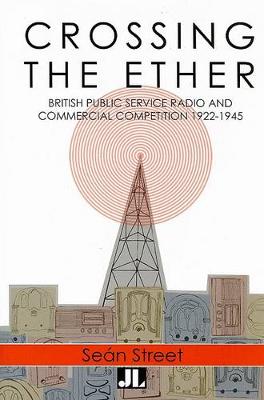Histories of British broadcasting suggest that the BBC monopoly was never seriously challenged until the coming of ITV in 1955. "Crossing the Ether" counters this view, telling the story of commercial radio's first challenge to the Public Service monopoly between 1930 and 1939. In the telling, this account provides substantial primary evidence that radio in Britain during the 1930s was a battleground between continental-based stations, run by British and American commercial interests, and the BBC. Legal, land-based independent radio in Britain first began in October 1973. Prior to this, Radio Luxembourg and the offshore 'pirate' stations of the 1960s had challenged the BBC's monopoly of the airwaves. It is, however,a lesser-known fact that the debate between public service and commercial interests in UK radio goes back much further - in fact to the very beginnings of the medium.Between 1920 and the outbreak of World War II, radio listening in Britain was a battlefield fought over on one hand by a somewhat paternalistic BBC, and on the other by Europe-based commercial stations, broadcasting populist sponsored English-language programmes.
This book explores fully for the first time the importance of the tension between the two in terms of the cultural and technical evolution of British sound broadcasting. In so doing, it questions the traditional historical view of the BBC as an unchallenged monopoly during the period, providing evidence that a number of crucial areas of broadcasting development in pre-war Britain resulted directly from the pressure of competition.
- ISBN10 0861966686
- ISBN13 9780861966684
- Publish Date 16 August 2006
- Publish Status Unknown
- Out of Print 9 April 2015
- Publish Country AU
- Publisher John Libbey & Co
- Imprint John Libbey Cinema and Animation
- Format Paperback
- Pages 256
- Language English
